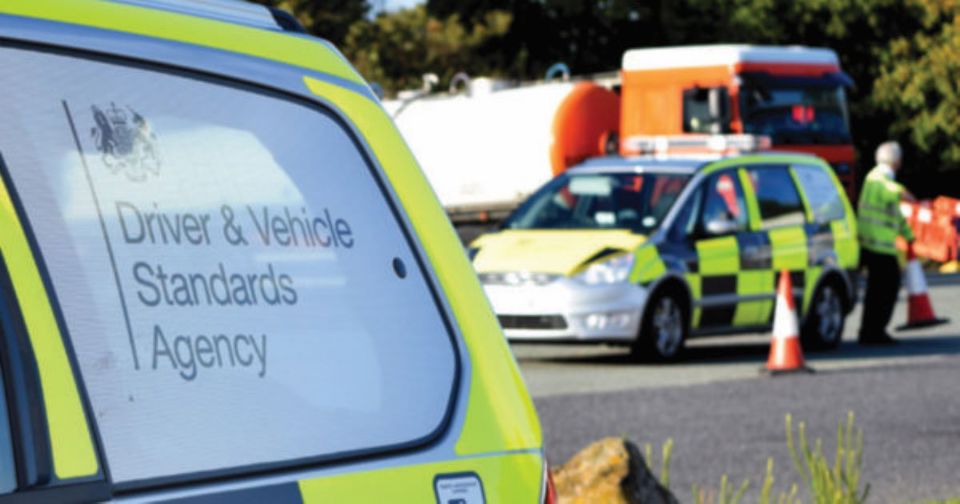Serious safety defects have been found in almost two-thirds (64%) of checks carried out by inspectors from the Driver and Vehicle Standards Agency (DVSA) on light goods vehicles (LGVs).
The research, conducted by Direct Line Business Insurance, suggests that the DVSA is on track to issue van operators with more than 6,800 prohibitions this financial year.
Eva Sandstra-Bennett, van product manager at Direct Line business insurance, says that, with almost 4.5 million vans on Great Britain’s roads, travelling 92.6 billion kilometres a year, the average van age has been creeping up and now sits at almost nine years.
As a result, she said: “It’s important operators carry out regular maintenance to ensure their vans stay roadworthy and reliable.”
She continued: “The most common reasons for prohibitions such as worn and damaged tyres, broken indicators, or lights and lose bodywork are easily spotted and relatively quick to fix.
“Overloading a van is tempting to often reduce the time a job may take when transporting materials or equipment, but it is an unnecessary risk that can put lives at risk and also damage the vehicle.
“If an accident is caused by the failure to keep your van roadworthy, it could also invalidate your insurance.”
Prohibitions typically refer to restrictions placed on vans or commercial vehicles due to safety concerns.
These can include issues related to the vehicle's roadworthiness, such as defects in brakes, tyres, lights, steering, and other critical components.
The DVSA may issue a prohibition if they find that a vehicle poses a danger to road users. Mechanical defects and overloading issues make up the majority of prohibitions issued.
When it comes to specific mechanical defects, the most common reason for a prohibition is the condition of the tyres (46%) followed by faulty indicators (26%) and bodywork issues (19%).
Two in five (40%) prohibitions were issued for overloaded vans. Overloading can be dangerous as it can impact on the driving performance, lead to increased stopping distances, difficulty in steering and make the vehicle more likely to tip over.
It will also cause excessive wear and tear to the van affecting tyres, suspension, and brakes.
“It's important for van operators and drivers to regularly inspect and maintain their vehicles to ensure they meet safety and compliance standards,” said Sandstra-Bennett.
“Regular vehicle checks, proper record-keeping, and adherence to regulations can help prevent the DVSA or Police issuing you with a prohibition and help keep everyone on our roads safe.”
Prohibitions can lead to enforced time off the road. The DVSA has the power to issue immediate or delayed prohibitions, depending on how dangerous the vehicle fault is.
An immediate prohibition is issued when a defect is considered so serious that the vehicle is prohibited from being driven straight away. The vehicle must be fixed on the spot or towed away.
A delayed prohibition allows the operator to continue to drive the vehicle, but the defect needs to be fixed within 10 days or less depending on how critical the issue is.
Once repaired, the vehicle will need to be reinspected to have the prohibition lifted before it can be used on the road again.
The DVSA can also issue Fixed Penalty Notices of up to £300 and van drivers could face three points on their driving licence, depending on the severity of the offence. The inspectors may also visit van operators’ premises and review maintenance records.
Reasons for light goods vehicle prohibitions issued off the back of roadside checks
|
Prohibition Type |
Proportion of Prohibitions |
|
Mechanical |
55% |
|
Overloading |
40% |
|
Offence Prohibitions |
5% |
|
Driver Hours |
>1% |
|
Hazard Materials & Chemical |
0% |
Source: Direct Line Business Insurance





















Login to comment
Comments
No comments have been made yet.